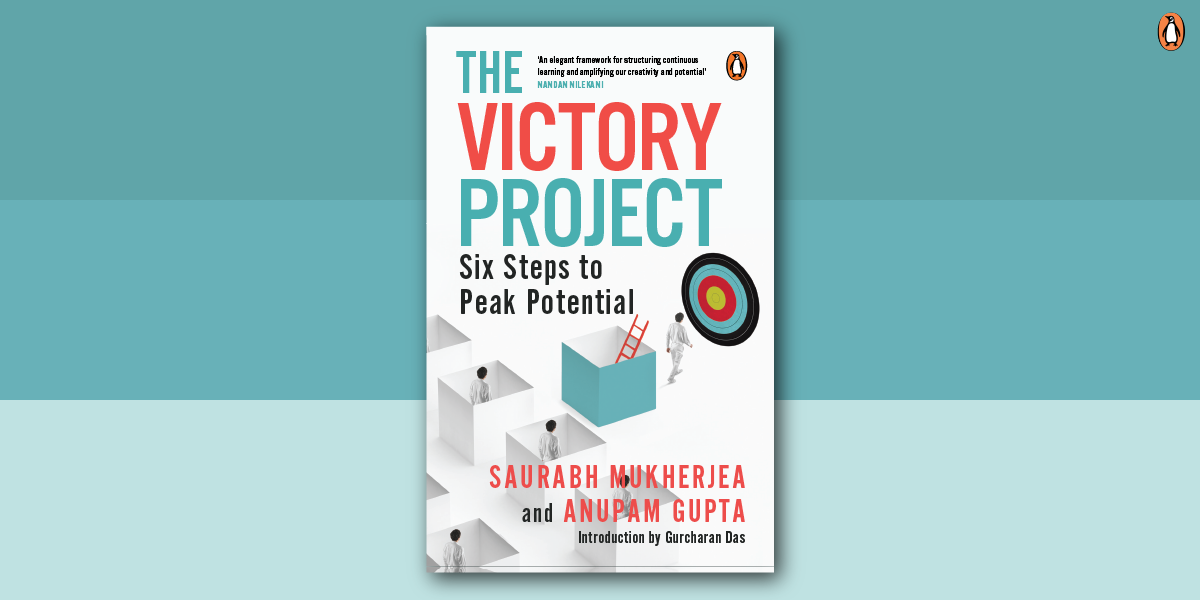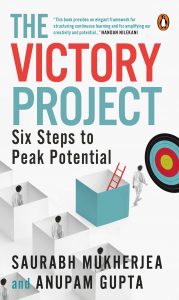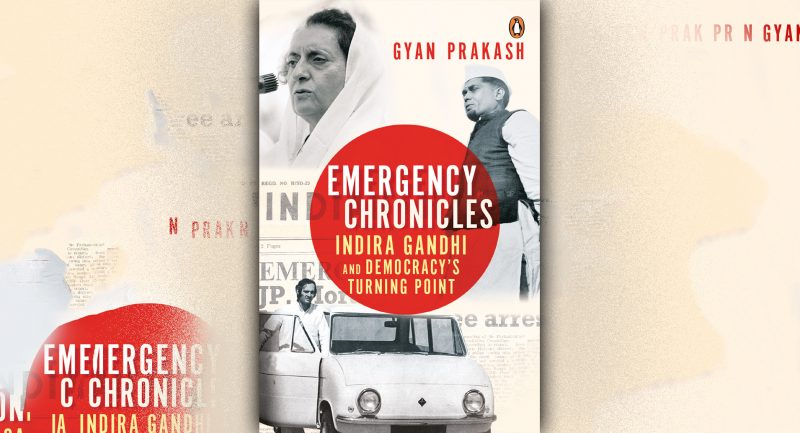
Amidst the stress of juggling high expectations in a highly competitive work environment, how does our generation, achieve our goals while leading fulfilling lives? Saurabh Mukherjea and Anupam Gupta attempt to answer this question by using the principles of Simplicity, Specialization, Creativity and Collaboration. They delve into a treasure trove of material from global gurus and successful business professionals while and drawing on their own careers to show how readers can apply these principles to the fields of business and investment, even to life itself. The Victory Project is the ultimate guide to surviving and thriving in the professional and social domains.

The Victory Project
Saurabh Mukherjea, Anupam Gupta
**
Things were not like this, our parents told us. But our parents lived in simpler times in a world of closed economies, government jobs, cocooned from the rest of the world, happy with 10 per cent increments and one-month bonuses. Their biggest dreams were to send their kids abroad and enjoy a retired life on government pensions in government colonies. T.V. Mohandas Pai, the former chief financial officer (CFO) of Infosys and current chairman of Manipal Global Education, tells us: ‘When I was growing up, we had a very simple life. We were happy with whatever we had—from a radio to a cycle to a company-owned car. We’d go to the library, read a book or read a comic. There was not much growth for us and no impetus to change. We had lower incomes and we didn’t know what more we could do as opportunities were scarce. The economy grew slowly! There wasn’t even a television to show us the world outside.’ Nearly thirty years after India opened up its economy to the world, our lifestyles—and those of youngsters after us—have seen a sea change that makes our lives almost unrecognizable to our parents. The plus side is the immense wealth created and enjoyed as new sectors and new careers propelled us forwards. The minus side is the price we have paid in physical and mental health. India’s weak infrastructure, unable to cope with decades of rapid economic growth, has only added to the pressures. Our aspirations might be on par with developed countries, but we are trying to fulfil those aspirations with gridlocked traffic, overflowing local trains and decrepit bridges. Pai says, ‘China invested in human capital to export to the world. They took the surpluses from that and put the money into improving infrastructure, improving the school and college networks. They incentivized heavy industry and so they went to a commanding position. We never put enough money into infrastructure. Now in India, human capital hasn’t grown much. The economy can grow at 8 per cent compound annual growth rate (CAGR) for a long time but employees simply can’t grow at that pace in their jobs and be more productive, and the infrastructure simply can’t keep up with the economy. As a result, the stress on their managers, on the C-Suite has gone up . . . All these things have resulted in the increased stress of urban living in India.’ When our ambitions get shackled by the limitations of the world around us, we seek help to cope. And the Internet is at our service. In all probability, while you are reading this book, you have notifications for twelve unread emails, fifteen WhatsApp pings and sundry other alerts on your mobile clamouring for your attention. And then there is infotainment—everything from TED Talks to National Geographic documentaries, books on pop psychology and behavioural finance to podcasts on history, science and politics. Thanks to the Internet, we have easy access to enormous amounts of wisdom and—remarkably enough—most of it can be accessed for free or at a nominal charge. And yet this cornucopia of knowledge flatters to deceive. As we show in the next chapter, psychologists and cognitive and behavioural scientists are now moving towards a view that our brains are experts at fooling us. How does this cluttered mind affect us? For one, we lose focus and our attention span suffers. There is also the small matter that this diversity of material does not seem to be making us wiser or happier or less stressed. In fact, stress levels in India are: (a) higher compared to other countries; and (b) rising ever higher for the employed workforce.
**









